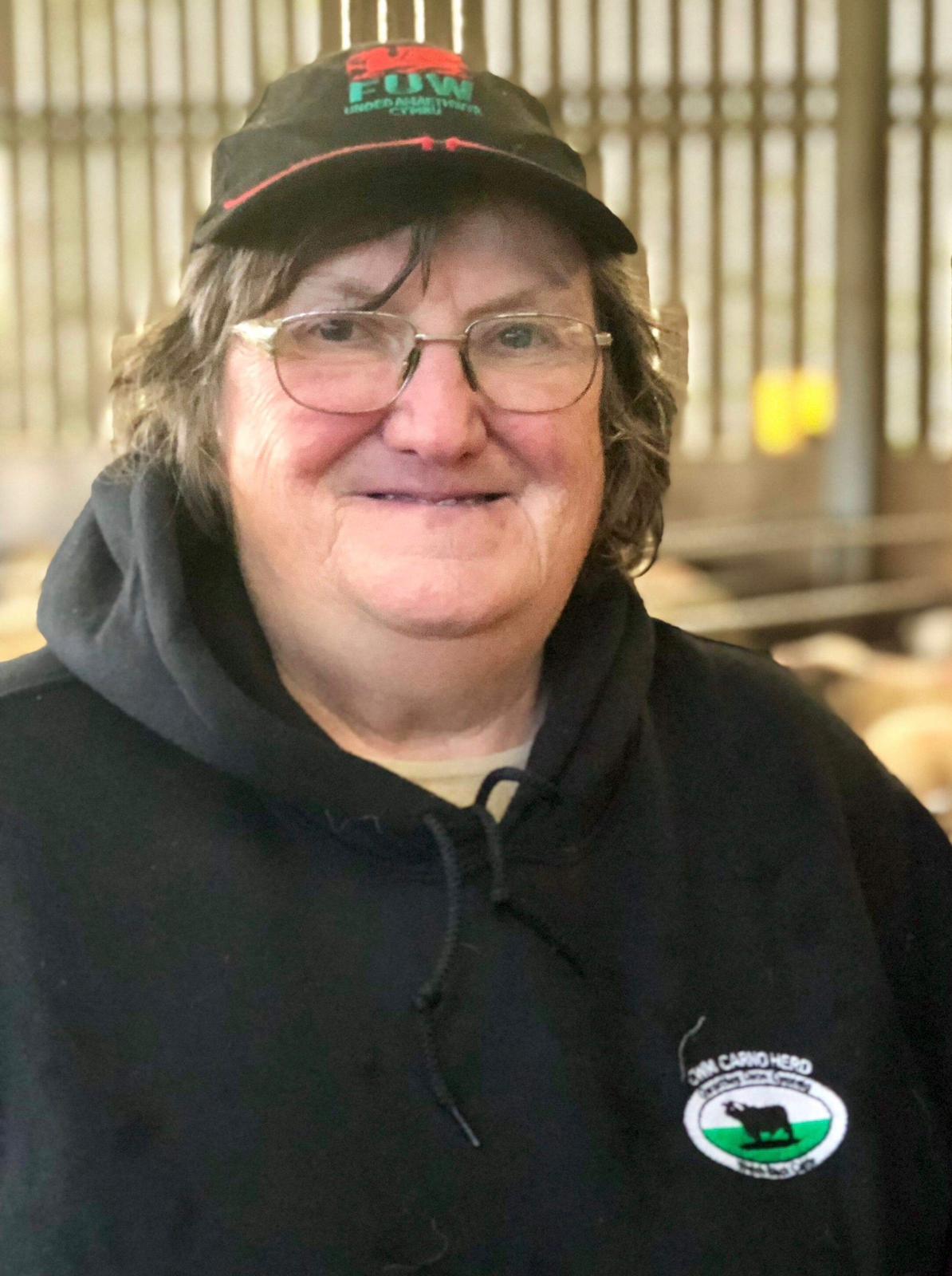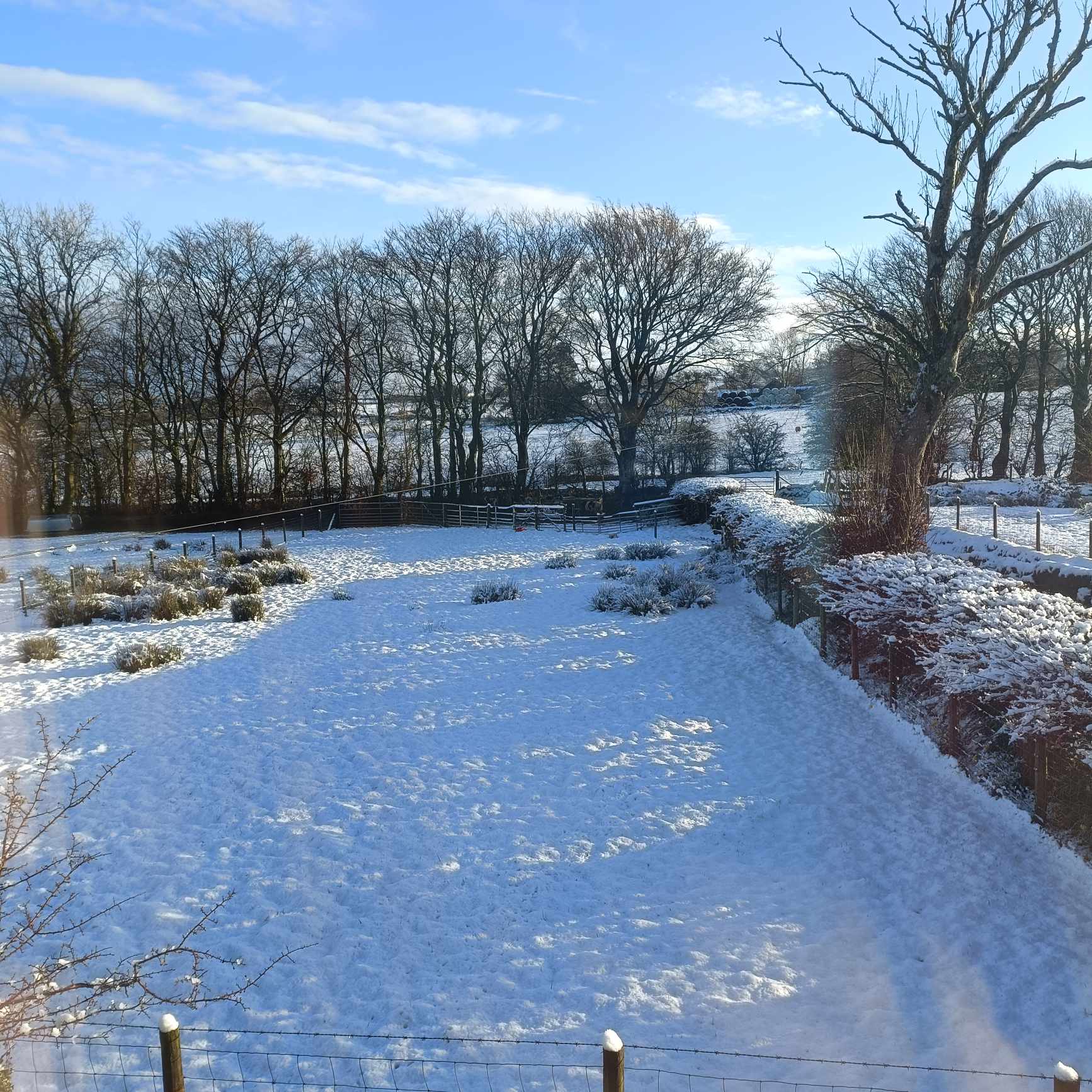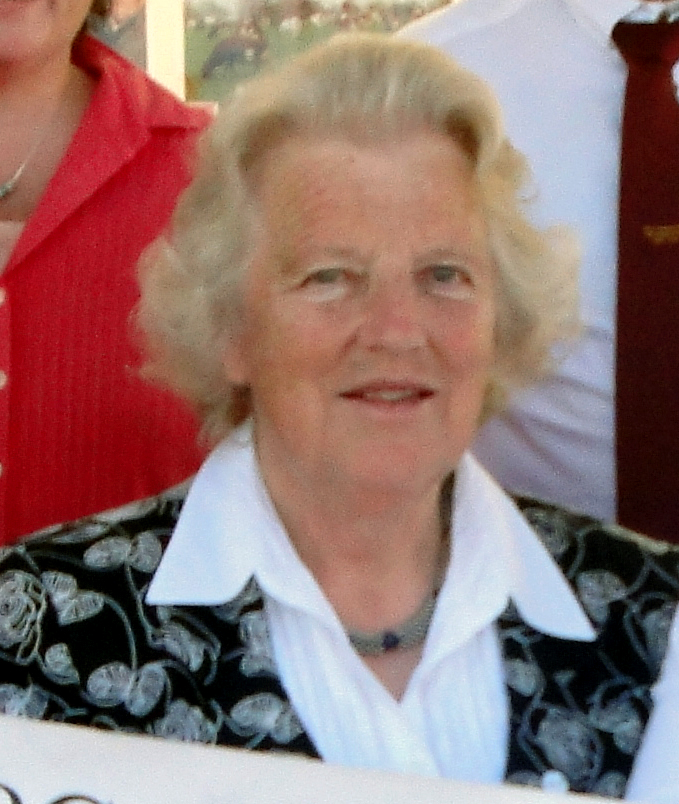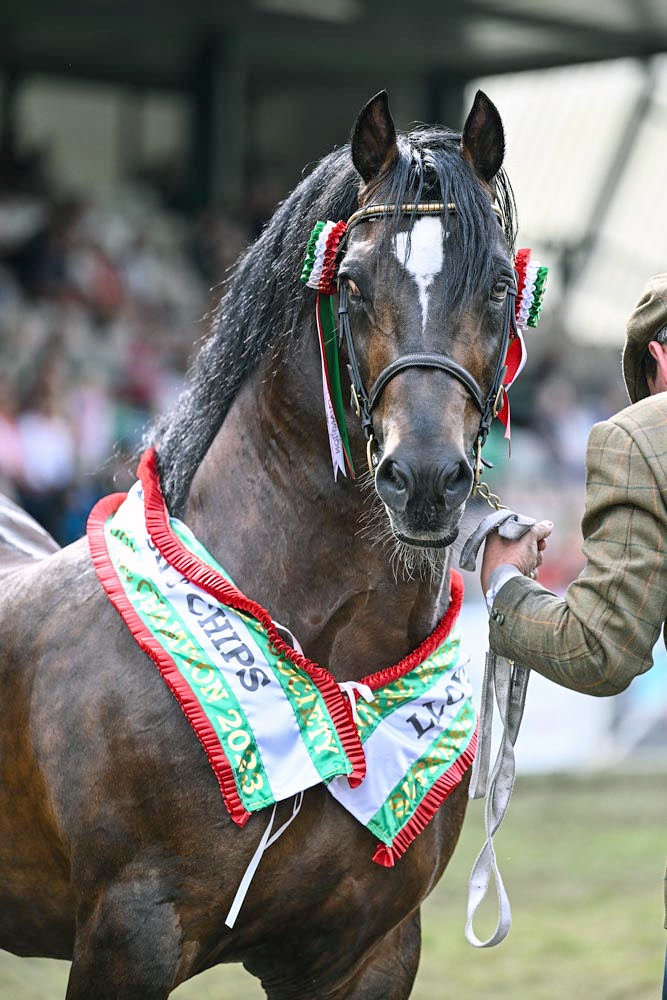By Glyn Roberts, former FUW President
On reflection, I can’t recall the first time I met Lorraine. A person of great character and warmth but I do remember her on the FUW’s Finance & Organisation (F&O) committee, of which she was elected some time before me. Lorraine and Terry Bayliss used to travel up to Aberystwyth together, I learned very quickly that if I wanted to convince these two I needed to carry out my homework first, as both were of strong characters. I probably disagreed more with Lorraine on some things than any other member of the F&O, but any disagreement ended at the door on the way out.
A few years ago, Eleri, myself and our daughters went to visit Lorraine at Cwm Carno. She made us feel at home straight away. We could see she was a hard working, independent woman with a heart of gold. She was sure of her beliefs and would undoubtedly stand up for herself in a male dominated agricultural world. Sometimes, people would take her the wrong way due to her abruptness, as I learned. You had to take Lorraine as she was! She was an inspiration to my daughters - a strong willed woman. Lorraine and Beca used to discuss farming issues and always teased one another - she had a great sense of humour. I can hear her now saying “Don’t you listen to your father! You do whatever you want! You show him how to farm!”
Last August was the last time Eleri and I visited Lorraine. Unfortunately, I could see a deterioration in her health but her mind was as sharp as ever! Soon the conversation revolved around FUW matters and back to the good old days of the F&O. I remember telling her that we disagreed on many things, her answer was that the important thing was that we had a mutual respect, we did what was best for the Union and the industry, and we did nothing for our own benefit. Fair play to Lorraine she lived by these principles.
Another of her principles was her determination to give Lee Pritchard an opportunity to develop within agriculture as he was not from a farming background. On that day we last saw her, we saw others who had been important to her - she emphasised her respect for the FUW’s current President Ian Rickman as well as past Presidents Gareth Vaughan and Emyr Jones. She was also very complimentary of the FUW’s County Executive Officer in Glamorgan and Gwent, Sharon Pritchard and past County Executive Officer, Glyn Davies.
The picture of Lorraine shows us exactly who Lorraine was - it shows the passion Lorraine had not only for agriculture but also for the FUW with her cap and the Welsh Black jumper, that’s how I will definitely remember her.
Lorraine used to be a teacher, but her true career was farming and her heart was in the rural community. She was from the Valleys, with a strong Valleys accent and was proud to carry the Valleys values running through her veins! She used to tell me that she was one of the “WERIN”, not one of the “crachach!”
Although her health was not at its best in the last few years, she coped well in a positive manner. She still visited the Royal Welsh Show and adapted herself to the environment by using the buggy.
She, like everyone else, did have some disappointments in life, I’ll never forget the way she opened her heart to me on one occasion. She said that she was not as hard as some people thought she was. I remember seeing a poster with a picture of a kiwi fruit stating it was hard on the outside and rough on the edges but soft in the middle, this was Lorraine in a nutshell.
I remember travelling from Anglesey Show with Lorraine and Beca when Lee phoned. From my one-sided conversation, I understood that Lee wanted a new machine and Lorraine sounded quite adamant and stern that she could not justify the investment. After concluding the conversation, Lorraine turned to me and said Lee would have the machine as he was such a good boy, “I’m so lucky to have him.”
Lee was like a son to Lorraine, they were such a good team. There was mutual respect and friendship between both, I’m adamant Lorraine’s legacy will live on through Lee, and pob lwc to Lee and the family.
Cwsg a gwyn dy fyd Lorraine fach.
Llyfr o atgofion a hiraeth - ni all neb ei gau.
A book full of memories and loss - no one can never close.







